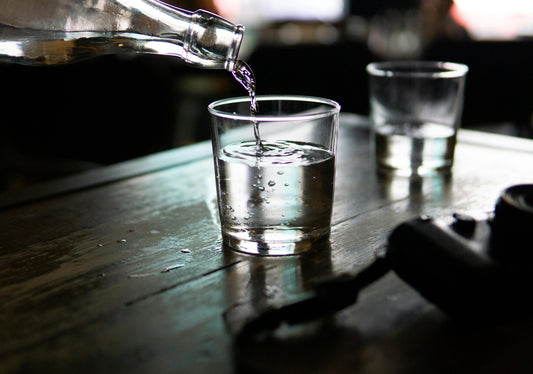Water filters are an essential part of any home. They can help to remove contaminants from water, making it safe to drink and use for cooking. There are many different types of water filters available, each with its own advantages and disadvantages.
The most popular water filter media are:
- Activated carbon: Activated carbon is a highly porous material that can remove a wide variety of contaminants from water, including chlorine, organic compounds, and heavy metals.
- Reverse osmosis: Reverse osmosis is a process that forces water through a semi-permeable membrane, which removes all but the smallest contaminants.
- Ultraviolet light (UV): UV light can kill bacteria and other microorganisms in water.
- Granular activated alumina (GAA): GAA is a type of activated alumina that can remove a wide variety of contaminants from water, including chlorine, organic compounds, and heavy metals.
- Manganese dioxide: Manganese dioxide is a type of manganese oxide that can remove iron and manganese from water.
The type of water filter media that is best for you will depend on the contaminants that are present in your water. If you are unsure of the contaminants in your water, you can have it tested by a professional.
Here is a more detailed explanation of each type of water filter media:
Activated carbon
Activated carbon is a highly porous material that is made from organic materials such as coconut shells, wood, or coal. It is used in water filters to remove a wide variety of contaminants, including chlorine, organic compounds, and heavy metals. Activated carbon works by adsorbing the contaminants onto its surface.
Reverse osmosis
Reverse osmosis is a process that forces water through a semi-permeable membrane, which removes all but the smallest contaminants. The membrane is made of a material that allows water molecules to pass through, but it blocks larger molecules such as chlorine, organic compounds, and heavy metals. Reverse osmosis is a very effective way to remove contaminants from water, but it can also remove some of the beneficial minerals.
Ultraviolet light (UV)
Ultraviolet light (UV) is a type of electromagnetic radiation that can kill bacteria and other microorganisms in water. UV light works by damaging the DNA of the microorganisms, which prevents them from reproducing. UV light is a very effective way to kill bacteria and other microorganisms, but it does not remove any contaminants from water.
Granular activated alumina (GAA)
Granular activated alumina (GAA) is a type of activated alumina that is used in water filters to remove a wide variety of contaminants from water, including chlorine, organic compounds, and heavy metals. GAA works by adsorbing the contaminants onto its surface.
Manganese dioxide
Manganese dioxide is a type of manganese oxide that is used in water filters to remove iron and manganese from water. Manganese dioxide works by oxidizing the iron and manganese, which causes them to precipitate out of the water.
Choosing the Right Water Filter Media
The type of water filter media that is best for you will depend on the contaminants that are present in your water. If you are unsure of the contaminants in your water, you can have it tested by a professional.
Here are some factors to consider when choosing a water filter media:
- The type of contaminants in your water: Some water filters are better at removing certain types of contaminants than others. For example, activated carbon is a good choice for removing chlorine, while reverse osmosis is a good choice for removing heavy metals.
- The amount of water you use: If you use a lot of water, you will need a water filter with a larger capacity.
- Your budget: Water filters can range in price from a few dollars to several hundred dollars. Choose a water filter that fits your budget.
Once you have chosen a water filter media, it is important to have it installed by a qualified professional. Improper installation can lead to leaks, fires, and other safety hazards.
Water filters are an essential part of any home. They can help to remove contaminants from water, making it safe to drink and use for cooking. Choose the right water filter media for your needs and have it installed by a qualified professional to ensure that it is safe and effective.






